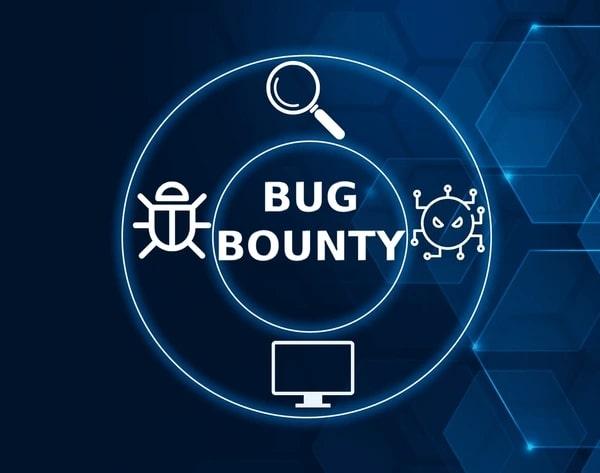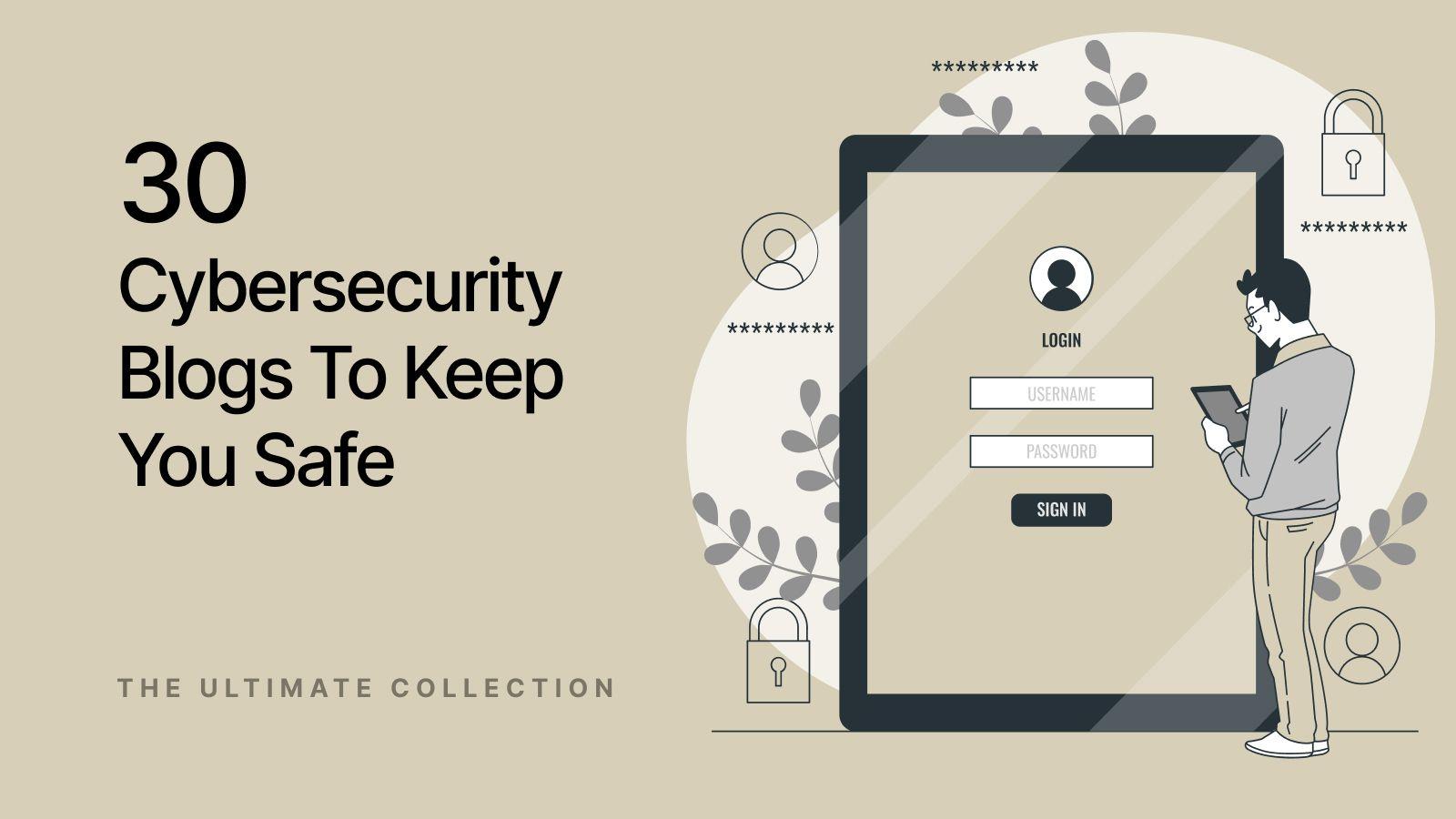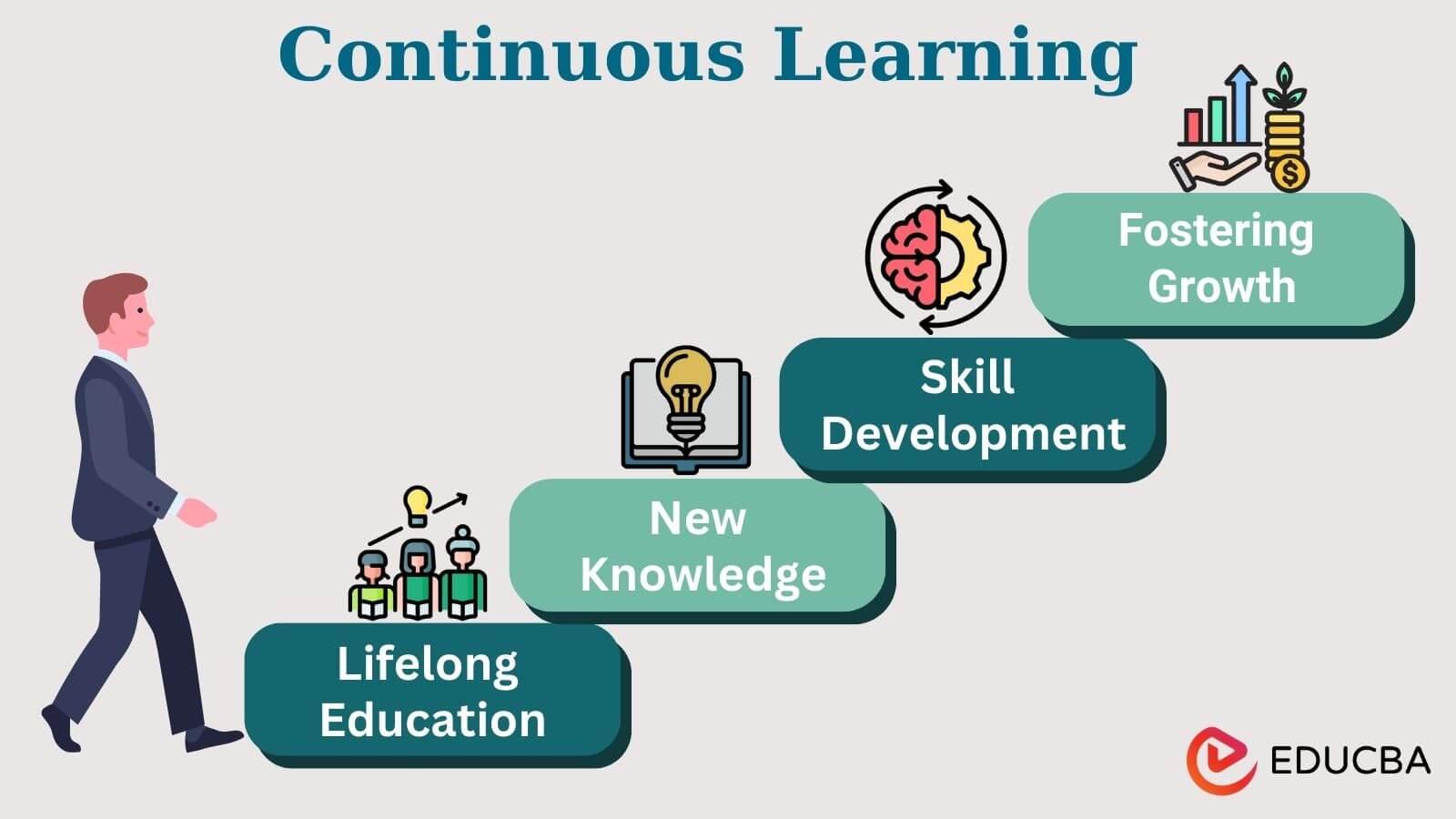
Introduction
Hey there, fellow tech enthusiast! Have you ever thought about the world of hacking and how it can actually put some cash in your pocket? While the word “hacking” often conjures up images of shadowy figures in dimly lit rooms, the truth is that ethical hacking is not only a legitimate career path but also a lucrative one. Whether you’re a coding whiz, a cybersecurity buff, or just someone with an insatiable curiosity for technology, there are plenty of ways to turn your skills into a profitable venture.
In this article, we’re diving into 11 exciting and completely legal ways to make money hacking. From freelance gigs to full-time positions, these opportunities not only allow you to flex your technical prowess but also contribute positively to the digital world. So, if you’re ready to transform your passion for hacking into a rewarding income stream, let’s explore the possibilities together!
– Understanding Ethical Hacking and Its Importance in Todays Digital World
In today’s rapidly evolving digital landscape, where technology plays an integral role in our daily lives, the significance of ethical hacking cannot be overstated. As cyber threats become increasingly sophisticated, organizations are turning to ethical hackers to safeguard their systems, data, and reputations. Ethical hacking, in essence, is the practice of intentionally probing computer systems and networks to discover vulnerabilities that malicious hackers could exploit. This proactive measure not only strengthens security but also helps maintain trust with clients and consumers.
One of the key aspects that makes ethical hacking so vital is its role in identifying and resolving security issues before they can be exploited. Businesses, regardless of their size, face constant threats from cybercriminals. By employing ethical hackers, companies can minimize their risk and ensure compliance with regulatory requirements, which is crucial in maintaining their operational integrity. This growing need has paved the way for ethical hacking to be recognized as a legitimate career path.
Moreover, ethical hackers often work in collaboration with organizations to conduct penetration tests, vulnerability assessments, and security audits. These activities not only help identify weaknesses but also provide a roadmap for strengthening defenses. When organizations understand their vulnerabilities, they can implement better security measures, including employee training on safe online practices, thereby fostering a culture of security awareness.
The demand for skilled ethical hackers is skyrocketing, leading to a plethora of career opportunities. Some of the paths you might consider include:
- Penetration Tester: Simulate attacks to identify weaknesses.
- Security Consultant: Advise businesses on security best practices.
- Incident Responder: Manage and mitigate security breaches.
- Security Researcher: Study threats and develop mitigation strategies.
Another compelling facet of ethical hacking is the potential for lucrative income. Many ethical hackers can earn impressive salaries, especially those with certifications such as Certified Ethical Hacker (CEH) or Offensive Security Certified Professional (OSCP). Organizations are willing to invest considerably in professionals who can protect their assets, making this field not only rewarding in terms of job satisfaction but also financially attractive.
For those looking to monetize their skills, ethical hacking offers numerous avenues to explore. Here’s a brief overview of some methods:
- Freelancing: Offer your services on platforms like Upwork or Freelancer.
- Consulting: Provide expertise to companies needing security assessments.
- Bug Bounty Programs: Participate in programs offered by companies to find and report vulnerabilities.
- Creating Educational Content: Write blogs or produce videos on cybersecurity topics.
As you delve into ethical hacking, it’s essential to stay updated with the latest trends and tools in cybersecurity. Continuous learning through online courses, certifications, and participation in hacking communities can significantly enhance your skills and marketability. This commitment to learning not only boosts your career prospects but also contributes to a more secure digital environment for all.
Ultimately, ethical hacking plays a crucial role in today’s digital world. It empowers organizations to defend against cyber threats while providing ethical hackers with a fulfilling career path. As the digital landscape continues to grow, so too will the importance of ethical hacking, making it an exciting field to be a part of.

- Exploring the Skills You Need to Start Your Hacking Journey
Embarking on a hacking journey requires a solid foundation of skills that can help you navigate the complex world of cybersecurity effectively. Whether you’re looking to boost your income or secure a fulfilling career, honing these essential skills will set you up for success.
1. Understanding Networking Fundamentals: To begin your hacking journey, it’s crucial to grasp the basics of networking. Knowing how data flows across different networks, the role of routers and switches, and the intricacies of TCP/IP protocols can give you a significant advantage. Consider exploring:
- IP Addressing and Subnetting
- Network Protocols (TCP, UDP, HTTP, etc.)
- Firewalls and VPNs
2. Mastering Operating Systems: Become familiar with various operating systems, especially Linux, as it’s widely used in the hacking community. Understanding how different OS work can help you identify vulnerabilities and exploit them effectively. Focus on:
- Linux Command Line Basics
- Windows Security Features
- File System and Permissions
3. Learning Programming Languages: Knowledge of programming languages is vital for any aspiring hacker. Languages like Python, JavaScript, and Ruby are commonly used for writing scripts that automate tasks or exploit vulnerabilities. Start with:
- Python for scripting
- JavaScript for web hacking
- C/C++ for deeper system manipulation
4. Familiarizing with Cybersecurity Tools: There are a plethora of tools available designed to assist hackers, both ethical and otherwise. Learning how to use tools like Nmap, Wireshark, and Metasploit can greatly enhance your capabilities. Try out:
- Nmap for network discovery
- Wireshark for packet analysis
- Metasploit for penetration testing
5. Developing Problem-Solving Skills: Hacking often involves thinking outside the box and approaching problems creatively. Enhance your analytical skills by engaging in capture the flag (CTF) challenges or participating in online hacking competitions. These activities will help you:
- Sharpen your critical thinking
- Improve your adaptability
- Learn to work under pressure
6. Building a Strong Ethical Framework: As you dive deeper into hacking, it’s imperative to develop a robust ethical framework. Understanding the legal implications and ethical responsibilities of hacking will not only keep you on the right side of the law but also build your reputation in the cybersecurity community.
| Skill Area | Key Focus Points |
|---|---|
| Networking | IP, Protocols, VPNs |
| Operating Systems | Linux, Windows, Permissions |
| Programming | Python, JavaScript, C/C++ |
| Cybersecurity Tools | Nmap, Wireshark, Metasploit |
| Problem-Solving | CTFs, Competitions |
| Ethics | Legal Awareness, Responsibility |
By focusing on developing these skills, you’ll not only prepare yourself for the challenges that lie ahead but also open doors to numerous opportunities in the exciting field of ethical hacking. Remember, the journey is just as important as the destination, so take your time to explore each aspect thoroughly!
- Building Your Portfolio: Showcasing Your Hacking Expertise
Building Your Portfolio: Showcasing Your Hacking Expertise
In the ever-evolving world of cybersecurity, having a robust portfolio is crucial for standing out in a competitive field. It’s not just about demonstrating your skills; it’s about telling your story as a hacker. Your portfolio should reflect your journey, projects, and the unique value you bring to the table.
Start by including real-world projects that highlight your skills. This could be anything from a simple application you secured to a comprehensive penetration test you conducted for a client. Make sure to document the process, the challenges you faced, and the solutions you implemented. This not only showcases your technical abilities but also your problem-solving skills.
Don’t shy away from sharing your contributions to open-source projects. These contributions not only demonstrate your technical prowess but also your willingness to collaborate with others in the community. Potential employers will appreciate your ability to work well in teams, and it shows you’re committed to the growth of the field.
Consider creating a blog or a YouTube channel where you can share your insights on various hacking techniques, tools, and trends. This not only builds your online presence but also positions you as a thought leader in the hacking community. When prospective clients or employers see you actively engaging with the community, they’re more likely to view you as an authority in your field.
To give your portfolio a professional touch, include case studies. Present a few scenarios where you successfully identified vulnerabilities and how your interventions made a difference. You can structure these case studies using a simple format:
| Case Study | Challenge | Solution | Outcome |
|---|---|---|---|
| Web App Security Audit | Identified SQL Injection vulnerabilities | Implemented prepared statements | Improved security and customer trust |
| Network Penetration Test | Weak firewall configurations | Reconfigured firewall settings | Enhanced network security |
Lastly, don’t forget to include certifications and training. List any relevant certifications such as CEH, OSCP, or CISSP that demonstrate your commitment to professional development. This reinforces your credibility and shows that you’re serious about your career.
building a compelling portfolio takes time and effort, but it’s worth it. By showcasing your projects, contributions, and continuous learning, you’re creating a narrative that speaks volumes about your hacking expertise. Make your portfolio not just a collection of work, but a reflection of who you are as a hacker.

– The Power of Certifications: Which Ones to Pursue for Maximum Impact
In the rapidly evolving world of cybersecurity, certifications can serve as powerful catalysts for career advancement and income potential. They not only validate your skills but also demonstrate your commitment to ethical hacking practices. Pursuing the right certifications can significantly enhance your marketability in a field that is becoming increasingly competitive.
Here are some key certifications worth considering:
- Certified Ethical Hacker (CEH): This certification is highly recognized and focuses on the skills and tools used by malicious hackers, with an emphasis on ethical practices. It’s perfect for those looking to break into the field.
- CompTIA Security+: A foundational certification that covers the essential concepts of cybersecurity. It’s ideal for newcomers and serves as a stepping stone to more advanced certifications.
- Offensive Security Certified Professional (OSCP): Known for its rigorous hands-on exam, this certification is perfect for those who want to prove their ability in real-world penetration testing.
- Cisco Certified CyberOps Associate: This certification focuses on security operations and monitoring, making it suitable for individuals interested in security operations center (SOC) roles.
When selecting the certifications to pursue, consider your career goals and the specific industries you want to target. For instance, if your aim is to work in a corporate environment, a CEH or CompTIA Security+ might be more relevant. On the other hand, if you aspire to work as a penetration tester, the OSCP could be your best bet.
Another important factor is the investment of time and money. Some certifications require extensive study and practical experience, while others may be more accessible. Here’s a quick comparison of some popular certifications in terms of cost and duration:
| Certification | Cost (Approx.) | Duration (Study Hours) |
|---|---|---|
| CEH | $1,199 | 40-60 hours |
| CompTIA Security+ | $370 | 30-50 hours |
| OSCP | $1,149 | 80-100 hours |
| Cisco CyberOps Associate | $300 | 50-70 hours |
beyond the credentials themselves, the networking opportunities these certifications provide can be invaluable. Engaging with fellow professionals at conferences, forums, and study groups can open doors to job opportunities and collaborations. Remember, in a field as dynamic as cybersecurity, continuous learning and connections are key to long-term success.
– Freelancing in Cybersecurity: How to Find the Right Opportunities
Diving into the world of cybersecurity as a freelancer is not just about technical skills; it’s about finding the right opportunities that align with your expertise and interests. The demand for cybersecurity professionals has skyrocketed, and businesses are increasingly looking for talented individuals to help safeguard their digital assets. Here are some strategies to help you uncover lucrative freelancing gigs in this field.
Networking is Key
Building strong connections within the cybersecurity community can open doors to many opportunities. Here’s how to effectively network:
- Join cybersecurity forums and online groups like Reddit, LinkedIn, and Discord.
- Attend industry conferences and local meetups, both virtual and in-person.
- Engage in meaningful conversations on social media platforms, sharing your insights and expertise.
Utilize Freelance Platforms
Freelancing platforms are a treasure trove for cybersecurity gigs. Here are some popular options:
- Upwork: Ideal for a range of projects, from vulnerability assessments to compliance consulting.
- Freelancer: Offers a variety of short-term and long-term cybersecurity jobs.
- Fiverr: Great for offering specific services such as penetration testing or security audits.
Showcase Your Skills
Potential clients want to see what you can do. Consider creating a portfolio that highlights your past projects, certifications, and skills. This can include:
- Case studies of previous work and the challenges you overcame.
- Blog posts or articles showcasing your knowledge on current cybersecurity trends.
- Open-source contributions or personal projects that demonstrate your technical abilities.
Stay Updated on Industry Trends
The cybersecurity landscape is constantly evolving. Staying informed about the latest threats, tools, and best practices can give you an edge. Resources to consider:
- Follow industry-leading blogs and websites.
- Subscribe to cybersecurity newsletters.
- Take online courses to learn new skills and earn certifications.
Consider Specialization
While being a generalist can be beneficial, specializing in a specific area can set you apart. Areas to think about include:
- Penetration testing
- Incident response
- Compliance and regulatory frameworks
Securing freelance opportunities in cybersecurity requires a proactive approach and an understanding of the current market landscape. By leveraging networking, showcasing your skills, and keeping up with industry trends, you can position yourself as a sought-after professional in this booming field.

– Participating in Bug Bounty Programs: Earning Money While Helping Companies
Bug bounty programs present a golden opportunity for those with a knack for hacking to turn their skills into a lucrative income. Companies worldwide are increasingly recognizing the value of ethical hackers in enhancing their cybersecurity. By participating in these programs, you can earn financial rewards while contributing to a safer digital landscape.
What Are Bug Bounty Programs? They are initiatives set by organizations that invite security researchers to discover and report vulnerabilities in their systems. Companies offer monetary rewards for finding and responsibly disclosing bugs, allowing them to patch these issues before malicious hackers can exploit them.
Benefits of Joining Bug Bounty Programs:
- Monetary Rewards: Depending on the severity of the vulnerability, payouts can range from a few hundred to thousands of dollars.
- Skill Development: Engaging in these programs enhances your hacking skills and keeps you updated on the latest security trends.
- Networking Opportunities: You can connect with other ethical hackers and industry professionals, which could lead to job offers or collaborative projects.
- Reputation Building: Successfully finding and reporting bugs can establish you as a trusted expert in the cybersecurity field.
Once you’ve chosen a bug bounty program that aligns with your interests and expertise, the process usually involves:
- Signing Up: Create an account on the platform that hosts the program.
- Understanding the Rules: Familiarize yourself with the program’s guidelines, including what is in-scope and out-of-scope.
- Finding Bugs: Use various tools and techniques to identify vulnerabilities, documenting your findings meticulously.
- Reporting: Submit your findings via the designated reporting channel, including detailed information to help the organization understand the issue.
Many well-known companies run their own bug bounty programs, and the rewards can be quite lucrative. Here’s a quick comparison of some notable programs:
| Company | Average Payout | Scope of Testing |
|---|---|---|
| $500 – $31,337 | Web apps, Android apps, Google Cloud | |
| $500 - $40,000 | Facebook, Instagram, WhatsApp | |
| Microsoft | $500 - $100,000 | Microsoft products, Azure services |
| Uber | $1,000 – $10,000 | Uber app, Uber Eats |
In addition to these programs, various platforms aggregate multiple bug bounty opportunities, such as HackerOne and Bugcrowd. These platforms not only provide access to numerous programs but also feature leaderboards, allowing you to gauge your performance against peers.
Moreover, many organizations release public vulnerability disclosures, which can serve as a learning tool for budding hackers. By analyzing past reports and the methods used to find vulnerabilities, you can refine your skills and improve your chances of success in future hunts.
Ultimately, participating in bug bounty programs can be an enriching experience, both financially and personally. By adopting a responsible and ethical approach, you can make a significant impact while building a career in cybersecurity.

- Offering Security Consulting Services: Turning Your Knowledge Into Profit
In today’s digital landscape, businesses are increasingly aware of the importance of cybersecurity, making it a lucrative field for those with the right expertise. Offering security consulting services allows you to leverage your skills and knowledge to provide valuable insights while generating income. Here’s how you can effectively turn your cybersecurity expertise into a profitable venture.
First, identify your niche within the vast realm of cybersecurity. Consider specializing in areas such as:
- Risk Assessment: Help businesses evaluate their vulnerabilities and develop strategies to mitigate risks.
- Compliance: Guide companies in navigating regulatory requirements like GDPR or HIPAA.
- Pentest Services: Offer penetration testing to uncover potential weaknesses before malicious hackers do.
Next, build a strong personal brand that showcases your expertise. This can be achieved through:
- Networking: Attend industry conferences and join online forums to connect with potential clients.
- Content Creation: Share your knowledge through blogs, webinars, or podcasts to establish yourself as a thought leader.
- Social Media Presence: Utilize platforms like LinkedIn to promote your services and engage with your audience.
Once your brand is established, consider offering tiered consulting packages. Create a table to illustrate various service levels:
| Package | Services Offered | Price |
|---|---|---|
| Basic | Initial Risk Assessment, Recommendations | $500 |
| Standard | Basic + Compliance Review, 1 Pen Test | $1500 |
| Premium | Standard + Ongoing Support, Monthly Reporting | $3000 |
Don’t forget the importance of continuous learning and certification. Staying updated on the latest threats and technologies not only enhances your credibility but also your service offerings. Certifications such as CISSP, CEH, or CISM can significantly improve your marketability.
client relationships are key. Provide exceptional service, follow up regularly, and ask for feedback. Happy clients often lead to repeat business and referrals, expanding your client base and income potential.

– Teaching Hacking Skills: Creating Courses That Make a Difference
Teaching Hacking Skills: Creating Courses That Make a Difference
In today’s digital world, hacking skills have become essential, not just for security professionals but for anyone looking to thrive in an increasingly tech-driven economy. Teaching these skills can empower individuals to protect themselves and their businesses from cyber threats while also opening up lucrative career opportunities. However, to truly make a difference, it’s crucial to develop courses that are engaging, informative, and ethically sound.
When creating a hacking course, consider incorporating various teaching methods that cater to different learning styles. Hands-on labs and real-world scenarios can significantly enhance the learning experience. For instance, letting students practice in a controlled environment can help them understand the implications of their actions while honing their skills. Here are some engaging elements to include:
- Interactive Workshops: Facilitate sessions where students can collaborate to solve challenges.
- Guest Lectures: Invite industry professionals to share their insights and experiences.
- Case Studies: Analyze successful hacking prevention strategies used by organizations.
Another key aspect is the ethical framework within which you teach. Emphasizing the importance of ethical hacking and responsible disclosure helps shape a new generation of cybersecurity professionals who prioritize integrity. Create a module that covers:
| Ethical Principles | Description |
|---|---|
| Respect Privacy | Always obtain consent before testing systems. |
| Responsibility | Report vulnerabilities to the appropriate parties. |
| Continuous Learning | Stay updated with the latest security trends and threats. |
Moreover, consider the diverse backgrounds of your students. Tailoring your course materials to be accessible and relatable can make a significant difference. Use real-life examples that resonate with various demographics, ensuring that everyone feels included and motivated to learn. This approach can foster a community of learners who share knowledge and support one another.
Lastly, leverage technology to enhance your teaching strategy. Online platforms can provide flexibility, allowing students to learn at their own pace while still benefiting from direct instructor feedback. Consider incorporating elements like:
- Video Tutorials: Break down complex topics into digestible segments.
- Discussion Forums: Encourage peer-to-peer interaction and knowledge sharing.
- Quizzes and Challenges: Test comprehension and provide immediate feedback.
By focusing on these key areas, you can create a hacking course that not only teaches valuable skills but also fosters a sense of responsibility and community among aspiring hackers. Teaching hacking ethics and practical skills effectively will ensure your students are well-equipped to make a difference, both in their careers and in the world of cybersecurity.

– Blogging About Cybersecurity: Monetizing Your Passion for Writing
If you have a knack for writing and a passion for cybersecurity, why not combine the two to create a profitable venture? Blogging about cybersecurity can serve as a platform to share your knowledge while generating income. Here’s how you can turn your love for writing into a money-making opportunity.
First and foremost, consider affiliate marketing. By promoting cybersecurity tools, software, and courses that you believe in, you can earn commissions on sales made through your unique referral links. Choose products that resonate with your audience, ensuring they reflect your commitment to ethical practices.
Another lucrative method is offering premium content. You can create in-depth guides, eBooks, or online courses that delve deeper into hacking techniques, ethical hacking certifications, or cybersecurity best practices. By charging a fee for access to this content, you not only monetize your expertise but also provide valuable resources to your readers.
Additionally, sponsored content can be an engaging way to monetize your blog. Partner with cybersecurity companies to write reviews or features on their products. This not only generates revenue but also establishes your blog as a go-to resource for cybersecurity insights.
Consider building a membership site where subscribers can gain exclusive access to forums, live Q&A sessions, and personalized consultations. This creates a community around your blog and offers a steady stream of income while enhancing reader loyalty.
Furthermore, don’t overlook the potential of online workshops or webinars. Hosting sessions on ethical hacking techniques or cybersecurity awareness can attract a wide audience. Charge a registration fee to participate, and you’ll not only educate others but also earn money in the process.
Utilizing social media platforms to share your content can amplify your reach. As your audience grows, consider integrating ad revenue through Google AdSense or direct partnerships with brands that align with your blog’s mission.
| Monetization Method | Description |
|---|---|
| Affiliate Marketing | Promote products and earn commissions. |
| Premium Content | Sell eBooks or courses for in-depth knowledge. |
| Sponsored Content | Collaborate with brands for paid reviews. |
| Membership Sites | Charge for exclusive access to content and community. |
| Webinars/Workshops | Conduct paid educational sessions. |
Lastly, leverage your blog’s traffic to attract consulting opportunities. As an authority in cybersecurity, businesses may seek your advice on protecting their digital assets. This not only adds to your income but also enhances your credibility as a cybersecurity expert.

- Developing Hacking Tools: Creating Products That Solve Real Problems
Developing Hacking Tools: Creating Products That Solve Real Problems
In the rapidly evolving tech landscape, the demand for effective hacking tools has never been greater. By focusing on tools that address real needs, you can not only make a substantial income but also contribute positively to the cybersecurity community. The key is to identify specific problems that individuals and organizations face and develop solutions that make their lives easier.
One of the most effective approaches is to conduct thorough market research. Understanding the pain points experienced by users can lead to innovative tools that fill existing gaps in the market. For instance, consider creating tools that enhance password security or improve network vulnerability assessments. By doing so, you can target a niche audience that values safety and efficiency.
Here are some areas where you can develop impactful tools:
- Phishing Prevention: Develop browser extensions that alert users to potential phishing attacks.
- Malware Detection: Create software that scans and identifies malware in real-time.
- Network Monitoring: Build tools that provide insights into network traffic and detect anomalies.
- Encryption Services: Offer user-friendly encryption tools that ensure data privacy.
When creating your product, don’t underestimate the importance of user experience (UX). A well-designed, intuitive interface can make your tool more accessible and appealing. Remember, even the most powerful tool will struggle to find an audience if users find it challenging to navigate. Consider the following elements:
- Simple Navigation: Ensure users can easily find what they need.
- Educational Resources: Provide tutorials and guides that help users understand your tool’s features.
- Responsive Support: Offer quick assistance to address user concerns and feedback.
Moreover, think about monetization strategies for your products. Here are some common methods:
- Freemium Models: Offer basic functionality for free while charging for advanced features.
- Subscription Services: Implement monthly or yearly subscriptions for ongoing access and updates.
- Affiliate Partnerships: Collaborate with other service providers to offer bundled services.
Lastly, don’t forget to invest in effective marketing strategies. Utilizing social media, creating engaging content, and attending industry conferences can help spread the word about your tools. Collect testimonials and case studies to build credibility and attract more users. A product that solves real problems, combined with solid marketing, can lead to a fulfilling and lucrative venture in the hacking tools space.

– Joining Cybersecurity Competitions: Earning Recognition and Rewards
Participating in cybersecurity competitions can be an exhilarating way to showcase your skills while also earning recognition and potential rewards. These competitions—often referred to as Capture The Flag (CTF) events or hackathons—offer a platform for ethical hackers to demonstrate their prowess in solving real-world security challenges.
One of the most appealing aspects of joining these competitions is the opportunity to connect with industry professionals and like-minded peers. Here’s how competitions can benefit your career:
- Networking Opportunities: Engage with experts and potential employers who appreciate your skills.
- Skill Enhancement: Tackle challenging problems that push your knowledge and abilities to new heights.
- Portfolio Building: Build a portfolio of achievements that can impress future employers.
- Prizes and Scholarships: Many competitions offer cash prizes, scholarships, or internships to top performers.
Cybersecurity competitions can vary in format and difficulty, from beginner-friendly events to advanced challenges that test even the most seasoned individuals. Here’s a quick look at some popular types of competitions:
| Type of Competition | Description |
|---|---|
| CTFs | Teams solve a series of challenges to capture flags hidden in the system. |
| Hackathons | Participants create innovative security solutions in a limited timeframe. |
| Bug Bounty Programs | Companies reward hackers for finding and reporting vulnerabilities in their systems. |
| Capture the Flag with Real-World Scenarios | Simulated environments that replicate actual threats and vulnerabilities. |
Engaging in these competitions not only sharpens your skills but also boosts your confidence. Imagine standing on a virtual podium, recognized for your achievements—such accolades can significantly enhance your professional reputation. Employers often look for candidates who can think critically under pressure, and what better way to prove that than by excelling in a high-stakes competition?
Moreover, many competitions often have sponsorships or partnerships with major tech companies. This means that successful participants may catch the eye of recruiters looking for fresh talent in cybersecurity. By showcasing your talent and determination, you position yourself as an attractive candidate for future job opportunities.
In addition to personal and professional growth, the competitive aspects of these events can spur innovation and creativity. The problems presented often encourage out-of-the-box thinking, leading to the development of new strategies and solutions that could benefit the wider cybersecurity community.
So, if you’re looking to earn ethically and legally while honing your hacking skills, participating in cybersecurity competitions could be a game-changer. Whether you’re in it for the prizes, the recognition, or the networking opportunities, you’ll find that the rewards—both tangible and intangible—are well worth the effort.

– Networking with Industry Professionals: Building Relationships That Pay Off
When it comes to making money as an ethical hacker, one of the most vital components of your journey is establishing strong connections within the industry. Networking isn’t just about collecting business cards; it’s about building meaningful relationships that can lead to lucrative opportunities. Here are some strategies to help you forge those connections.
Attend Industry Events: Conferences, workshops, and seminars are treasure troves for meeting industry professionals. Engage with speakers and fellow attendees, and don’t hesitate to introduce yourself. Remember, many of these events have networking sessions specifically designed for this purpose.
Join Online Communities: The digital world is filled with forums and social media groups dedicated to ethical hacking. Platforms like LinkedIn, Reddit, and specialized forums can be invaluable for connecting with like-minded individuals. Share your insights, ask questions, and contribute to discussions. It’s a great way to get noticed!
Leverage Your Existing Network: Sometimes, the best connections come from people you already know. Let friends, family, and former colleagues know that you’re pursuing a career in ethical hacking. They might have contacts in the industry or can introduce you to someone who does.
Collaborate on Projects: One of the best ways to build relationships is through collaboration. Look for opportunities to work on open-source projects or participate in hackathons. This not only showcases your skills but also allows you to meet professionals who share your interests.
Follow Up: After meeting someone, make sure to follow up with a friendly message. Reference something you discussed to jog their memory. This small gesture shows that you are genuinely interested in building a relationship and can open doors to future conversations.
Offer Value: When networking, think about what you can offer in return. Whether it’s sharing knowledge, providing feedback on a project, or connecting them with other professionals, showing that you are willing to give can help solidify these relationships.
Consider Mentorship: Finding a mentor in the industry can be a game-changer. Look for seasoned professionals who can provide guidance and introduce you to others in the field. A mentor not only helps you navigate your career but can also open doors to exclusive opportunities.
Stay Active and Engaged: Networking is an ongoing process. Stay active on professional platforms, contribute to discussions, and share relevant content. Being present in the community keeps you top of mind when opportunities arise.
By building and nurturing these relationships, you create a network of professionals who can help you navigate the landscape of ethical hacking, leading to potential partnerships, job offers, and collaborative projects that can significantly enhance your earning potential.

– Staying Updated: Continuous Learning as a Path to Greater Earnings
In today’s fast-paced digital landscape, staying ahead of the curve is essential, especially for those looking to earn money through ethical hacking. The tech world evolves rapidly, and new vulnerabilities and technologies emerge regularly. To maximize your earning potential, committing to continuous learning is key. Here’s how you can enhance your skills and, ultimately, your income.
Follow Industry Trends: Keep an eye on the latest security breaches and hacking incidents reported in the media. Understanding what went wrong in these cases not only sharpens your analytical skills but also prepares you to prevent similar issues in your work. Subscribe to reputable cybersecurity blogs, podcasts, or newsletters to remain informed.
Engage in Online Courses: There is a plethora of online platforms offering courses tailored to ethical hacking and cybersecurity. Websites like Udemy, Coursera, and edX offer structured paths that can help you deepen your expertise. Completing these courses often comes with certifications that can increase your credibility and marketability.
Participate in Hackathons and Competitions: Engaging in hackathons not only hones your skills but also expands your network. These events often attract industry experts, potential employers, and like-minded peers. They can lead to job opportunities, collaborations, and even prize money. Look out for competitions like Capture The Flag (CTF) events, which are both challenging and rewarding.
Join Professional Organizations: Becoming a member of organizations like ISSA (Information Systems Security Association) or OWASP (Open Web Application Security Project) can provide invaluable resources. These communities offer networking opportunities, mentorship, and access to exclusive training sessions that can enhance your knowledge base.
Networking and Mentorship: Connecting with seasoned professionals in the field can provide insights that books and courses may not cover. Seek out mentors who can guide you through the complexities of ethical hacking. Attend local meetups or webinars to build your network and discover new opportunities.
Experiment and Practice: Nothing beats hands-on experience. Set up your own lab environment where you can practice different hacking techniques legally. Tools like Kali Linux or Metasploit allow you to explore vulnerabilities in a safe space. Regular practice not only bolsters your skills but also keeps you engaged and motivated.
Stay Certified: Earning and maintaining certifications such as CEH (Certified Ethical Hacker) or CISSP (Certified Information Systems Security Professional) can significantly boost your earning potential. These certifications validate your skills and demonstrate your commitment to the profession, making you a more attractive candidate to employers.
| Certification | Cost | Duration |
|---|---|---|
| CEH | $1,199 | 5 Days |
| CISSP | $699 | 5 Days |
| OSCP | $999 | 90 Days |
By dedicating time to continuous learning, you not only enhance your skill set but also open doors to higher-paying opportunities. As you grow in knowledge and expertise, your earnings can reflect the value you bring to the table. So, embrace the learning journey—your future self will thank you!

– Navigating Legalities in Hacking: Ensuring You Stay on the Right Side of the Law
When venturing into the world of hacking, it’s crucial to navigate the complex legal landscape to avoid pitfalls and ensure you’re on the right side of the law. While the term “hacking” can evoke images of cybercriminals breaching systems for malicious purposes, the truth is that ethical hacking has become a legitimate profession. Understanding the legalities involved can empower you to use your skills responsibly and profitably.
First and foremost, familiarize yourself with the Computer Fraud and Abuse Act (CFAA) in the United States and similar laws in other jurisdictions. This act outlines what constitutes unauthorized access to computer systems. By knowing these boundaries, you can avoid actions that might otherwise put you at risk of legal action. Remember, even seemingly harmless activities, like testing a system without permission, can lead to severe consequences.
To operate legally, consider obtaining proper permissions before engaging in any hacking activities. This can often be achieved through contractual agreements with clients or organizations that need your skills. When you secure a contract, ensure it explicitly states the scope of your engagement, detailing what is allowed and what is not. This protects both parties and clarifies expectations.
Another essential aspect is the concept of responsible disclosure. If you discover a vulnerability in a system, the ethical path is to inform the organization about the issue without exploiting it for personal gain. Many companies have bug bounty programs, where they reward ethical hackers for reporting vulnerabilities. Participating in these programs not only helps companies enhance their security but also provides you with a legal avenue to earn money while showcasing your skills.
Additionally, consider obtaining professional certifications such as Certified Ethical Hacker (CEH) or Offensive Security Certified Professional (OSCP). These credentials not only enhance your knowledge of ethical hacking practices but also bolster your credibility in the eyes of potential clients and employers. Having these qualifications can serve as a clear indication that you are committed to following legal and ethical guidelines in your hacking endeavors.
Moreover, joining professional organizations or communities focused on ethical hacking can provide you with valuable resources and support. Engaging with like-minded individuals can keep you updated on industry standards, best practices, and legal changes. These networks often share information about job opportunities and projects, allowing you to find work that aligns with your ethical stance.
don’t underestimate the importance of ongoing education. The tech landscape is always evolving, and new laws and regulations regarding data privacy and cybersecurity are frequently enacted. Staying informed about these changes through workshops, webinars, or courses can help you adjust your practices accordingly, ensuring that you remain compliant and ethical in your hacking endeavors.
Frequently Asked Questions (FAQ)
Q&A: How to Make Money Hacking (11 Ways To Earn Ethically & Legally)
Q: What exactly do you mean by “ethical hacking”?
A: Great question! Ethical hacking involves using hacking skills for good. Ethical hackers help organizations identify vulnerabilities in their systems to protect against malicious attacks. They operate with permission and legality, aiming to strengthen cybersecurity rather than exploit weaknesses.
Q: How can I start a career in ethical hacking?
A: Starting a career in ethical hacking is more accessible than you might think! Begin by educating yourself through online courses, certifications (like CEH or CISSP), and practice labs. Building a solid foundation in networking, programming, and operating systems will set you on the right path. The key is to continuously learn and stay updated with the latest security trends.
Q: What are some ways to make money as an ethical hacker?
A: There are plenty of opportunities! Here are a few ways:
- Penetration Testing: Get paid to simulate attacks on systems and provide reports.
- Bug Bounty Programs: Companies like Google and Facebook pay hackers to find and report security flaws.
- Consulting: Offer your expertise to businesses looking to improve their security posture.
- Teaching: Create and sell courses or write books about ethical hacking.
- Freelancing: Take on projects via platforms like Upwork or Fiverr.
- Cybersecurity Blogging: Start a blog about cybersecurity and monetize through ads.
- Security Auditing: Help organizations assess their security controls and compliance.
- Vulnerability Assessment: Conduct assessments to find and fix weaknesses in systems.
- Incident Response: Assist companies in responding to security breaches.
- Developing Security Software: Create tools or solutions for security and sell them.
- Speaking Engagements: Share your knowledge at conferences and workshops for a fee.
Q: Do I need any specific qualifications to become an ethical hacker?
A: While formal education can help, it’s not always necessary. Many ethical hackers come from diverse backgrounds, including IT, computer science, or even self-taught paths. Certifications like Certified Ethical Hacker (CEH) or Offensive Security Certified Professional (OSCP) can enhance your credibility and knowledge.
Q: Is ethical hacking a sustainable career path?
A: Absolutely! With cybersecurity threats on the rise, the demand for skilled ethical hackers is growing rapidly. Companies are investing heavily in their security, which means career stability and plenty of opportunities for growth. Plus, ethical hacking can be quite lucrative, especially as you gain experience and specialization.
Q: How do I find clients or companies willing to hire ethical hackers?
A: Networking is key! Join cybersecurity communities, attend conferences, and connect with professionals on platforms like LinkedIn. Websites dedicated to freelance work or job boards focused on cybersecurity can also be valuable resources. Don’t forget to showcase your skills through a portfolio or GitHub profile, as this can attract potential clients.
Q: Can ethical hacking be done remotely?
A: Yes! Many ethical hacking jobs can be done from anywhere, making it a highly flexible career choice. As long as you have a computer and a reliable internet connection, you can work with clients across the globe. This flexibility is one of the many perks of being an ethical hacker!
Q: How can I ensure I’m hacking ethically and legally?
A: Always operate within the boundaries of the law and have explicit permission before testing any system. Familiarize yourself with laws and regulations regarding cybersecurity in your region. Clear contracts outlining your work and the scope of permissions can also help protect you and your clients.
Q: What is the best way to stay updated in the field of ethical hacking?
A: The cybersecurity landscape is always evolving, so staying updated is crucial! Follow industry blogs, listen to podcasts, attend webinars, and participate in forums. Engaging with the cybersecurity community through social media and professional organizations can also keep you informed about the latest trends, tools, and techniques.
Q: Is ethical hacking suitable for everyone?
A: While ethical hacking can be rewarding, it’s not for everyone. It requires a passion for problem-solving, critical thinking, and a solid understanding of technology. If you enjoy puzzles, challenges, and continuous learning, then ethical hacking might just be the perfect fit for you!
if you’ve got the skills and the willingness to learn, there are numerous legal and ethical ways to make money hacking. Not only can you secure your financial future, but you’ll also be contributing to a safer digital world. So, why wait? Dive into the dynamic world of ethical hacking today!
The Conclusion
As we wrap up our exploration of ethical and legal ways to make money hacking, it’s clear that the world of cybersecurity offers a wealth of opportunities for those willing to learn and adapt. Whether you’re looking to dive into bug bounty programs, explore freelance gigs, or even teach others about digital security, the avenues are vast and exciting.
Remember, hacking isn’t just about breaking into systems—it’s about understanding how they work and helping to make them better and safer. By harnessing your skills for good, you not only stand to profit but also contribute to a more secure online environment for everyone.
So, what are you waiting for? Whether you’re a seasoned pro or just starting, take the next step. Invest in your skills, connect with like-minded individuals, and explore the myriad of opportunities that await you in the ethical hacking landscape. Embrace the challenge, and turn your passion into profit!
Thank you for joining us on this journey. Here’s to your success in the exciting world of ethical hacking!






